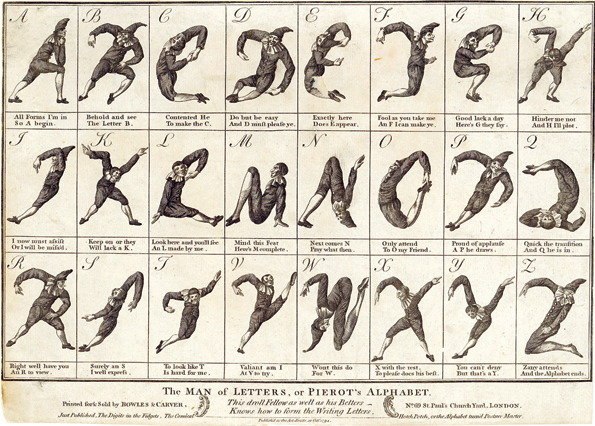Butler's
Doubting Love
"One knows love somehow only when all one’s ideas are destroyed, and this
becoming unhinged from what one knows is the paradigmatic sign of love."
Love destabilizes what one knows, what
Sontag calls "our gods today". The names we have for important things. Our name
for and idea
of love.
Butler's
doubting love is Foucault's curiosity
- "a certain relentlessness in ridding ourselves of our familiarities
and looking at things otherwise..."
It is also what awaits further yet.
"People know what they do; they often know why they do it but what the people don't know, is what they do does".(
DH&RP, 187)
It is love, Butler says, that always returns to us what we do and do not know.
"One finds that love is not a state, a feeling, a disposition, but an
exchange, uneven, fraught with history, with ghosts, with longings that
are more or less legible to those who try to see one another with their
own faulty vision. "
... love in flux, love which doubts itself into flux, out of 'comfortable', out of the known and the familiar idea of love, and any/every lesser thing then as well.
Butler reads Freud on doubting love as calling the most important thing into question, not letting assumptions go on unquestioned. Doubting as opening up of space, within and beyond the space already there.
"I cannot pretend to know myself at the moment of love, but I cannot
pretend to fully know myself. I must neither vacate the knowledge that I
have — the knowledge, after all, that will make me a better lover — and
I cannot be the one who knows everything in advance — which would make
me proud and, finally, lovable."
Finally, Butler's
doubting love is Nietzsche's questioning, as Babette Babich writes about in
Nietzsche's "Gay" Science, Nietzschean belief that everyone possesses a lust for questioning, and questioning at all costs (BB, pg.102).
Doubting Love meets
gai saber.
Nietzsche’s gay science is a passionate, fully joyful science. But to say this is also to say that a gay science is a dedicated science: scientific “all the way down.” This is a science including the most painful and troubling insights, daring, to use Nietzsche’s language here, every ultimate or “last consequence” ( BGE 22; KSA13, 14[79]). Doubting just as well as Montaigne, doubting in a more radical fashion than Descartes, and still more critical than Kant or Schopenhauer, dispensing with Spinoza’s and with Hegel’s (but also with Darwin’s and even Newton’s) faith, Nietzsche’s joyful, newly joyful, scientist carries “the will henceforth to question further, more deeply, stringently, harshly, cruelly, and quietly than one had questioned heretofore” (GS, preface, 3). Even confidence in life itself, as a value, of course, but also as such, now “becomes a problem.” The result is a new kind of love and a new kind of joy, a new passion, a “new happiness.” (BB, 99)
To Be Read in the Interrogative - Julio Cortazar
Have you seen
have you really seen
the snow the stars the felt step of the breeze
Have you touched
really have you touched
the plate the bread the face of that woman you love
so much
Have you lived
like a blow to the head
the flash the gasp the fall the flight
Have you known
known in every pore of your skin
how your eyes your hands your sex your soft heart
must be thrown away
must be wept away
must be invented all over again.
* * *
July 2013
...months go by, I forget about this doubting, reading in the interrogative, and settle in fixity of the idea of love. Comfortable because it has been repeated enough times to have become so familiar a truth that needn't be doubted. Safe. A god worshipped in unquestionable unquestioning repetition.
Then, a reminder:
Badiou,
In Praise of Love:
“I am really interested in the time love endures. Let’s be precise: by
endure, one should not simply understand that love lasts, that love is
forever and always. One has to understand that love
invents a
different
way of lasting."(
Love Dog)
and another:
"An honorable human relationship — that is, one in which
two people have the right to use the word “love” — is a process,
delicate, violent, often terrifying to both persons involved, a process
of
refining the truths they can tell each other.
It is important to do this because it breaks down human self-delusion and isolation.
It is important to do this because in doing so we do justice to our own complexity.
It is important to do this because we can count on so few people to go that hard way with us."
(
Adrienne Rich)













































